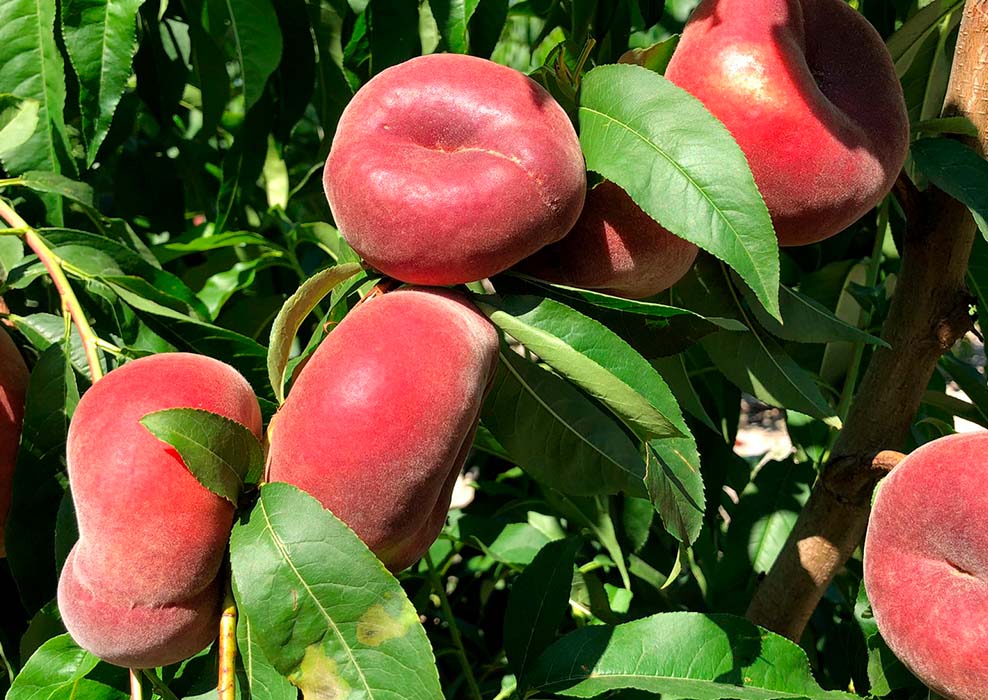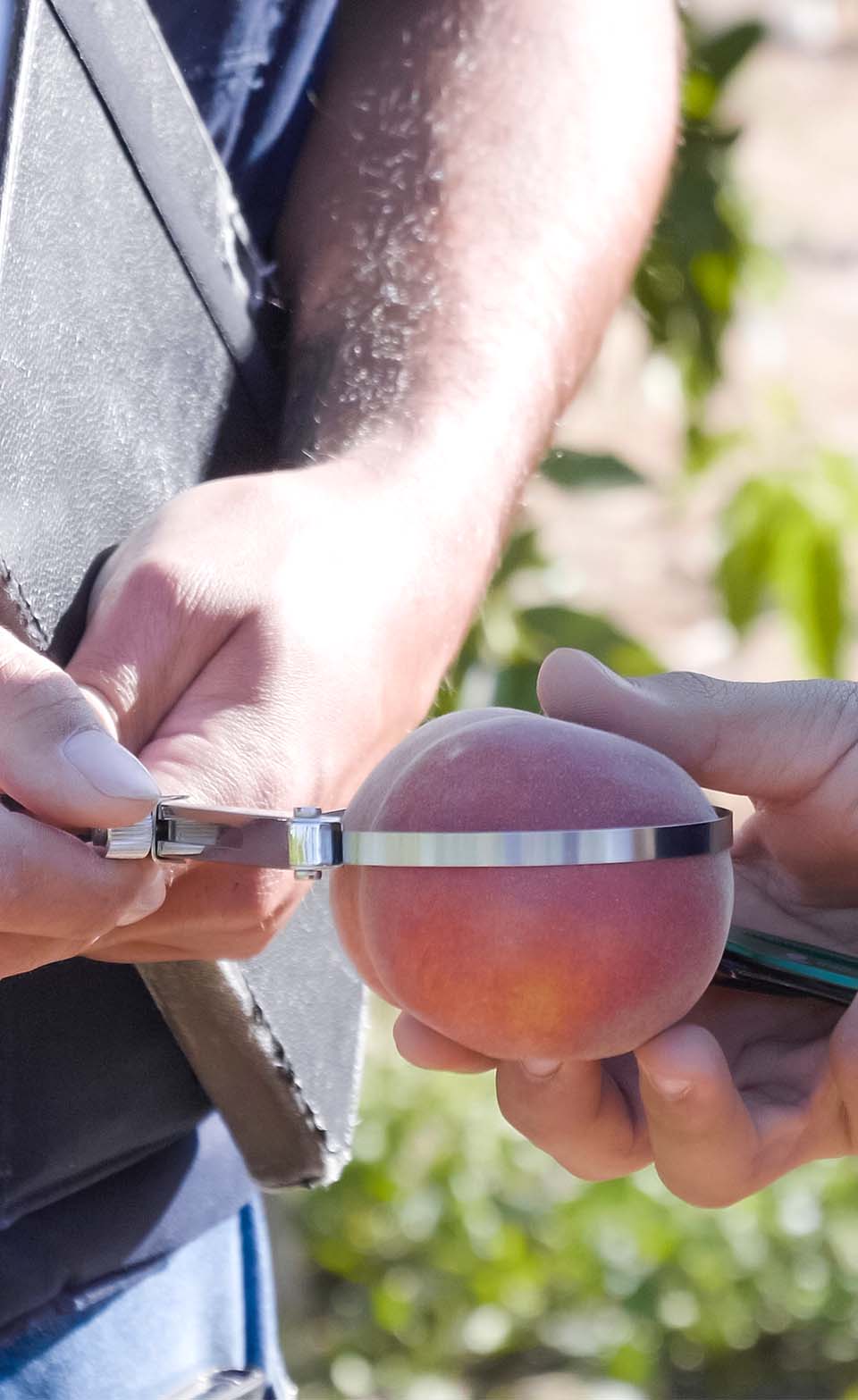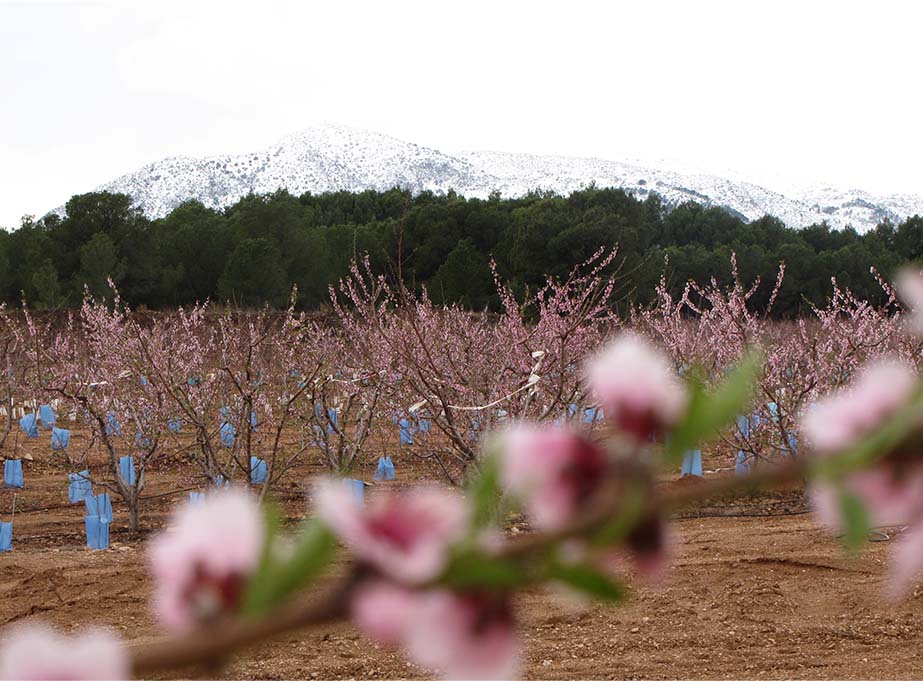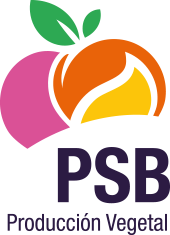
Breeding is the cornerstone of our business, the starting point of what we are and what we want to achieve. To reach our goal, we have a technical and commercial team that establishes and controls 100% of our breeding programme.
The breeding process lasts 3 months and is performed by a standing, qualified team. During this period, the objective is to complete the ranges of each proposed varieties from April to September and to produce the fruits that will be marketed in the future. The result of this teamwork is over 40,000 new hybrids planted every year.

It is essential for us that the producer can maximize the benefits when growing PSB varieties. Therefore, when we select new varieties, we have several selection criteria: taste, attractive red colour, size, round or flat shape, disease resistance and firmness. All these criteria together allow for easier harvesting and fruit handling in the warehouse and smooth transportation to the final customer.

Our objective when studying the behaviour of a particular variety is to see how it reacts to climate variations every year (winter dormant period, rainfall, temperature contrast, etc.). Therefore, to gather as much information as possible, the study is conducted for a minimum of 10 years.
The full phenology of the variety is studied from the dormant season to the blooming period and the development of fruit. The variety’s agricultural behaviour is studied during the entire harvesting season and during its time in storage (up to 40 days).

Thanks to our collaborators and our testing fields all over the world, we can observe how each new variety adapts to a specific production area. Indeed, a variety can be adapted to a wide range of production areas or be limited to certain areas.

Our best varieties are protected at a European level with a CPVR (Community plant variety rights) certificate issued by the CPVO (Community Plant Variety Office). Certificates from non-EU countries are applied for individually in each country. Moreover, they are registered in several different national catalogues.
Our intellectual property rights are defended by specialized lawyers in every country where our varieties are distributed and by dedicated organizations such as GESLIVE (specialized in plant variety rights).
To date, PSB has registered and protected over 100 varieties of apricots, peaches and nectarines (round or flat shaped).

PSB’s research line focuses on creating varieties adapted to the growers’ limitations and the demands of the market.
All our apricot varieties have to be rural, self-fertilizing and easy to handle, always having the best of tastes. Thanks to our latest research, we have succeeded in launching our range of red-skinned apricots called Red Premium®, which stand out for their attractive colour and their very sweet and exotic flavour.
Moreover, PSB has developed a range of low-acidity nectarines with a very sweet flavour and is currently working on extending their production calendar.
We are also working on a new range of flat nectarines that complements the highly-appreciated current one.
We focus both on the demands of the consumers and on the problems of today, such as fewer chill hours, to develop tomorrow’s varieties.
Our expertise as growers ensures that we can always implement improvements to the service we provide to growers and consumers. The trustworthy relationship we share with many growers around the world is our main motivation and continues to drive us forward.
Murcia
South-eastern Spain
Our main testing field is located in Sierra Espuña Regional Park, an area of traditional early-apricot production that allows us to study the behaviour and adaptation of our low-chilling and medium-chilling varieties.
We currently have about 45 hectares in the area of Murcia of experimental orchards under constant renewal and dedicated to the study of new varieties of apricots, peaches and round or flat nectarines.
Rhône Valley
South-eastern France
We also have close to 15 hectares of testing fields in the Rhône Valley:
One of the key to our work is our testing fields. These fields allow us to study the behaviour of every variety depending on the climate conditions of the area, so that we can see how they adapt. We have our own testing fields and we work with collaborators all around the world.
On the one hand, all our collaborators have their own testing fields, which allows us to evaluate each area and its climate. On the other hand, we also work with agronomical testing public bodies that assess both the behaviour and the characteristics of each variety.


© 2022 All rights reserved